When you decide to build your first rock garden, you’ll find that the questions come before the shovel. Should there be a sheet underneath — plastic or fleece? Do you mix in mulch, or let the earth breathe on its own? Where does one even begin with something that looks both ancient and deliberate?
This guide is your starting point. It’s part instruction, part inspiration — showing you how to lay the groundwork for a rock garden that not only survives the seasons but grows in quiet beauty. You’ll find ideas for every kind of space, from tiny corner plots to sculpted terraces, each one proof that stone can be more expressive than soil when placed with care.
A rock garden isn’t built quickly. It’s composed — one stone at a time, until the lines between design and nature blur completely.
What You Need to Build a Rock Garden
A rock garden isn’t built — it’s arranged. It’s a composition of patience, gravity, and good taste. Unlike flowers, rocks won’t grow or wilt. What you set down today might still look the same a century from now, so you might as well do it right.
Gather Your Tools
Before your first shovel hits the soil, take stock of what you’ll need. The materials depend on your space, but the essentials rarely change.



You’ll want a horticultural fleece or landscaping sheet to keep weeds from sneaking in. A sturdy shovel for digging and reshaping the land. And, of course, rocks — both large and small, in whatever colors feel like home to you. Some people swear by uniform tones, others prefer a mix that looks like it was gathered from a forgotten riverbed. Neither is wrong; this is your landscape to curate.
Optional, but highly recommended: a water feature to weave among the stones. A gentle trickle makes everything look aged, as if time itself has been flowing through your garden. And if you’re going the natural route, swap plastic barriers for cedar mulch. It looks better, smells divine, and spares the planet a bit of grief — though it’s not quite as good at keeping weeds away.
Once you’ve gathered your tools, the real fun begins.

Rock Garden Ideas to Inspire You
The Zen Garden
Rocks of every size seem to know how to calm a restless mind. This garden draws its stillness from the rhythm of stones and sand. One homeowner built theirs around a small natural stream, adding fine white sand and daily raking rituals to keep it pristine. For those far from running water, a small pond or a quiet bowl works just as well. No Zen garden is complete without a Buddha statue watching over the silence.


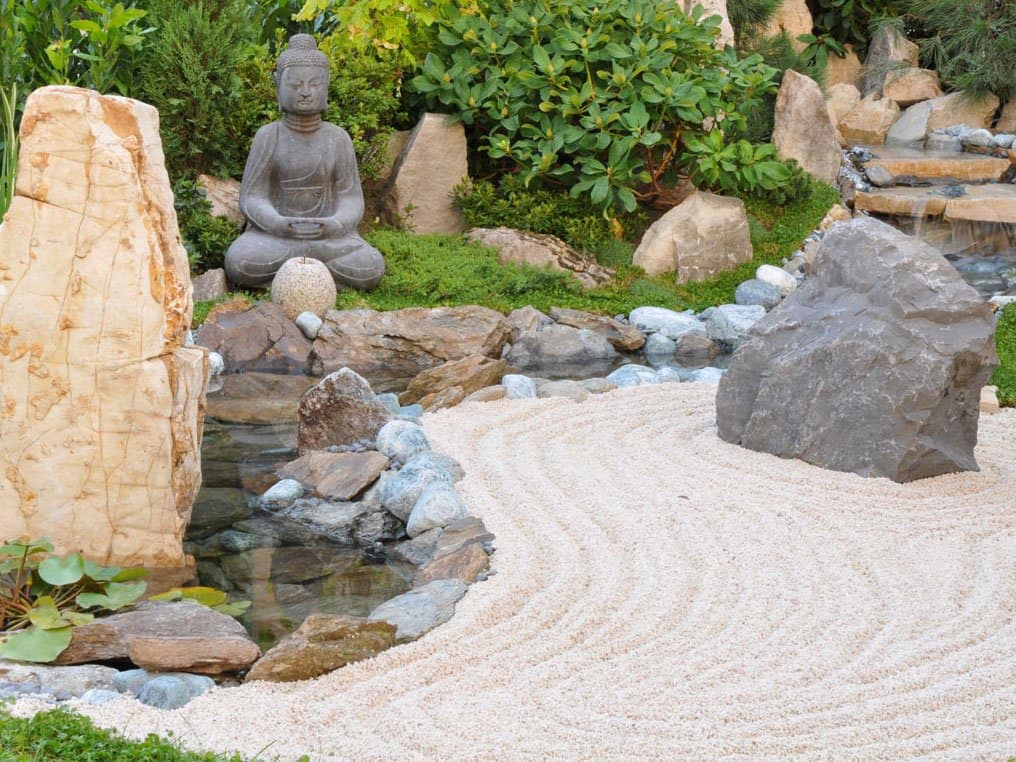
The River Rock Garden
When you don’t have a creek, make one. This design mimics the illusion of flowing water using smooth river rocks — small, washed, and perfectly rounded. Larger stones form the banks, keeping the “river” in place while giving the landscape depth and movement. With careful placement, the eye sees motion where there is none.

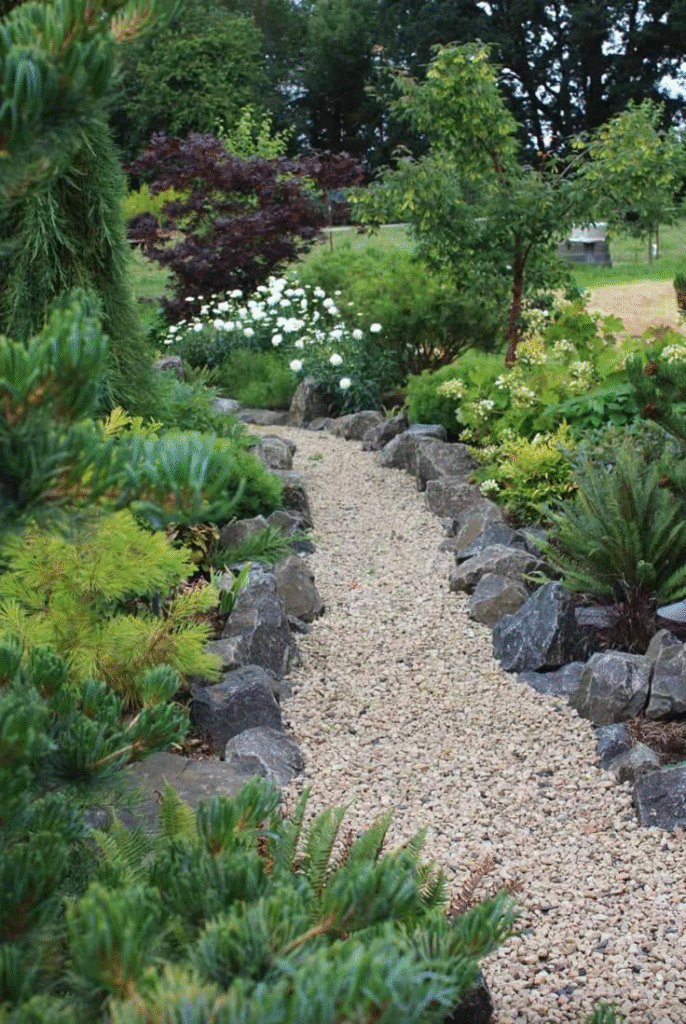
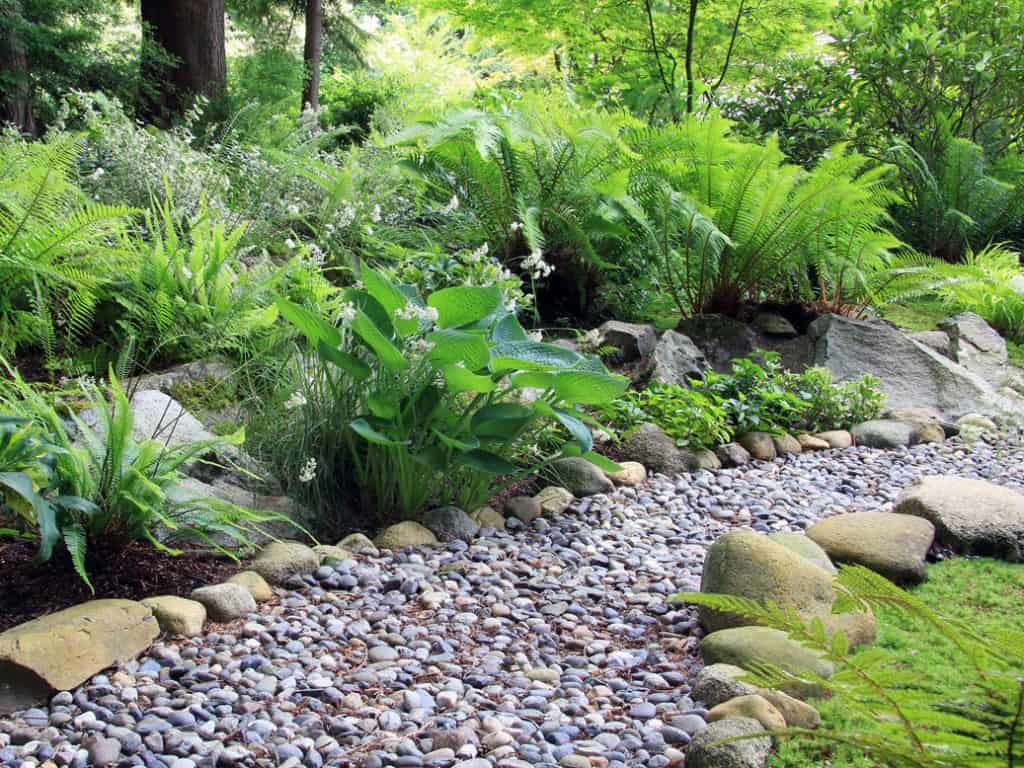
Mini Rock Garden
Small space, big imagination. A pot, some soil, and a handful of pebbles can turn into a miniature world. Add creeping herbs like thyme and oregano, a patch of moss, and perhaps a few painted mushrooms. These mini rock gardens are perfect for balconies and patios — and for kids learning that design can be play.
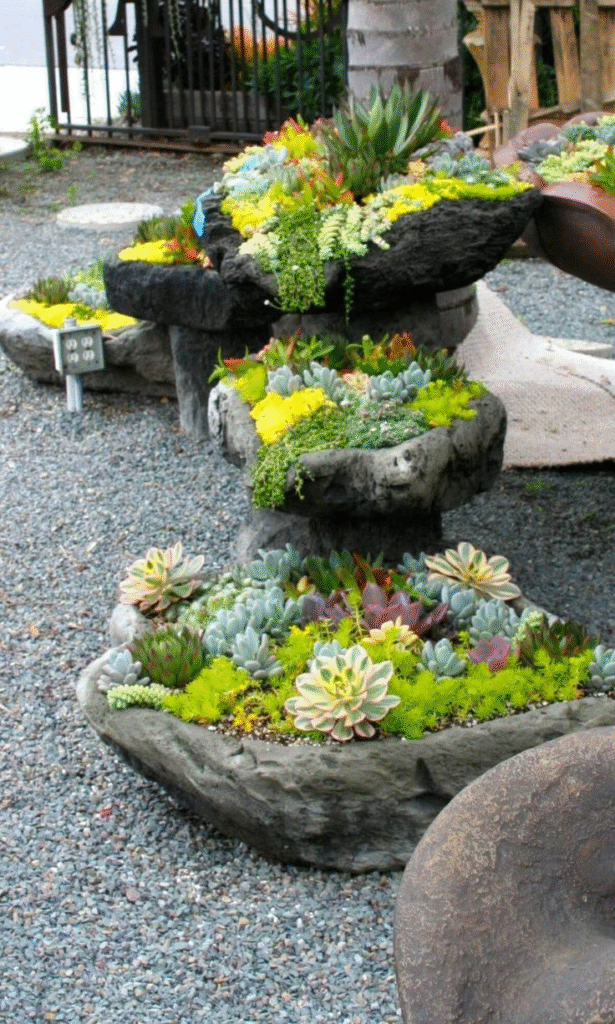

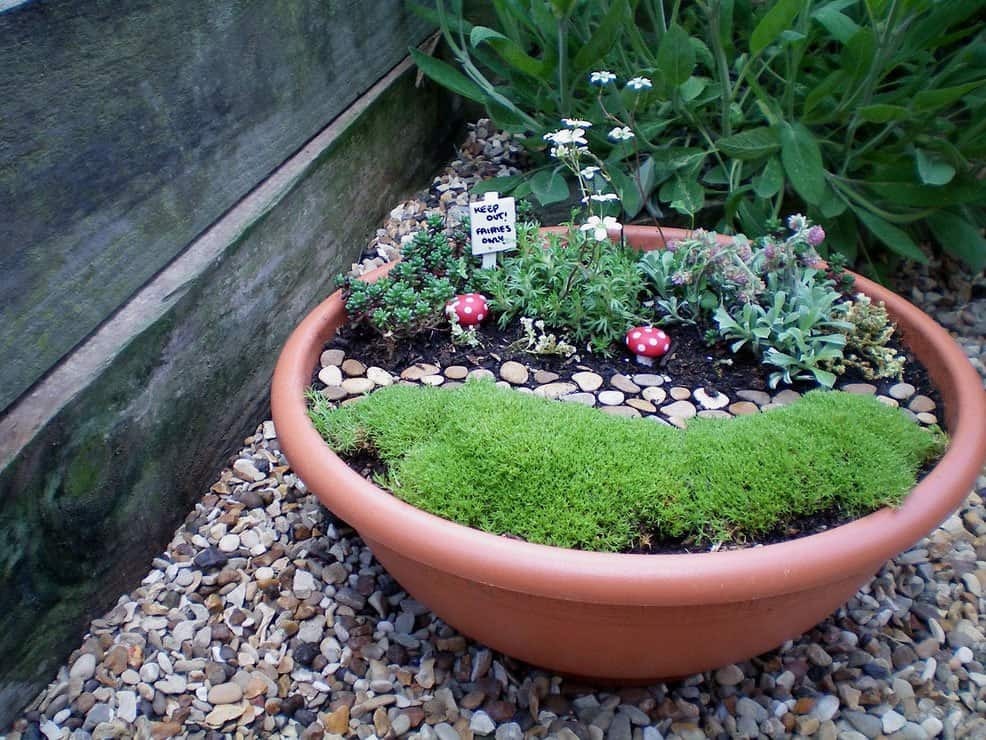
The Rock Garden Fountain
Water has a way of making even stone seem alive. This garden turns a single massive boulder into a cascading fountain. The sound softens the space, while nearby grasses and ferns complete the illusion of a natural spring. It’s a project that demands muscle — or friends with good backs — but the result is worth the labor.
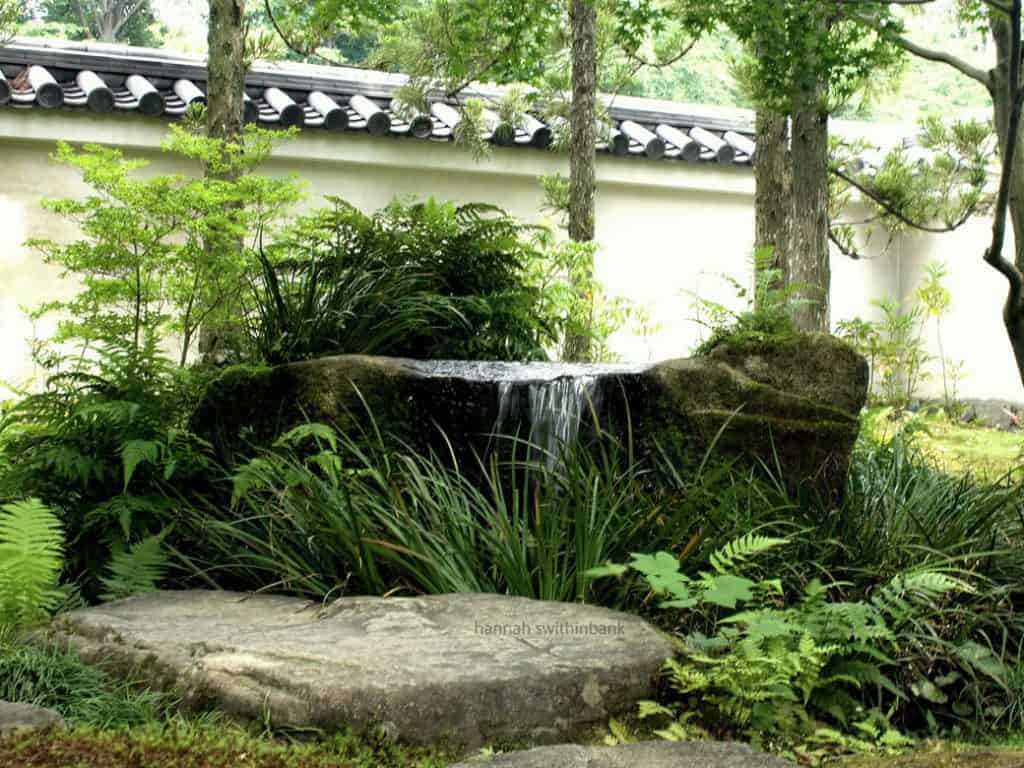
The Natural Slab Garden
For those drawn to simplicity, slate and slab stones are perfect. They form natural-looking steps or paths that lead the eye upward through greenery. In one example, a homeowner used yellow mineral-rich slabs that shimmer in sunlight — heavy, yes, but breathtaking once settled.
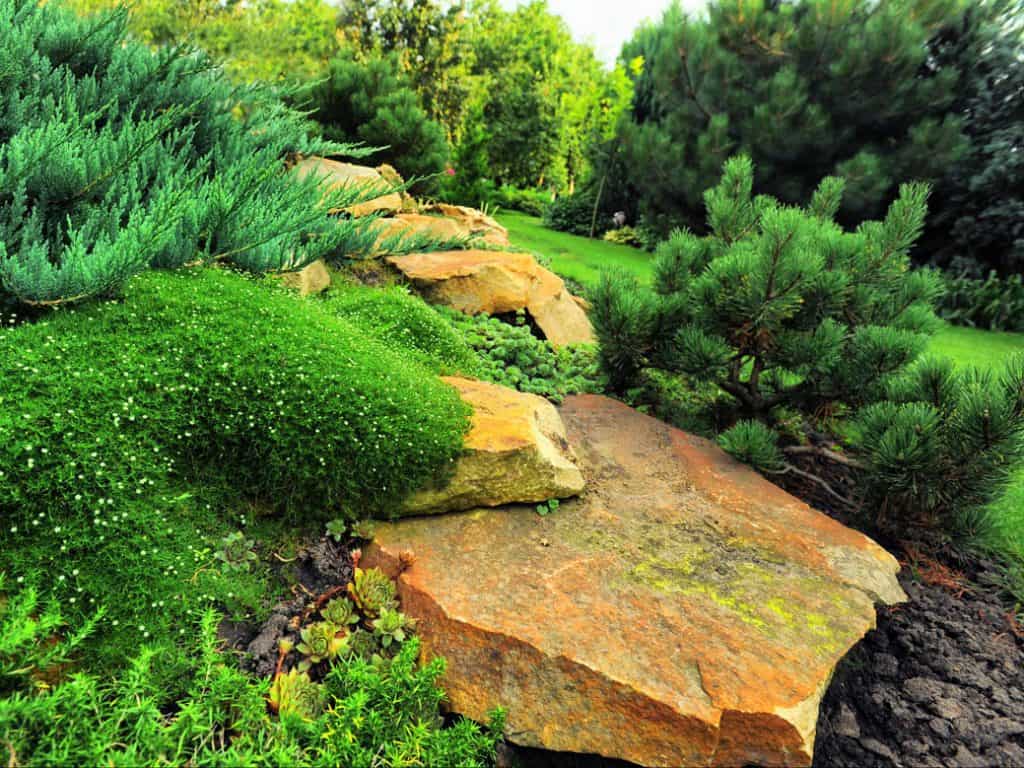


Small Rock Border Garden
Sometimes design is restraint. A few rocks placed deliberately can separate mulch from stone, soil from path. This simple border design creates definition, easy cleanup, and subtle depth. Elevating one side slightly above the other adds drama without excess.

Transitional Garden Spaces
When a yard needs structure, rocks make the perfect mediator between the wild and the controlled. Dark river rock beds on one side and greenery on the other create natural transitions. Add tan accent stones or flat “flagship” rocks as stepping markers to guide visitors through the contrast.
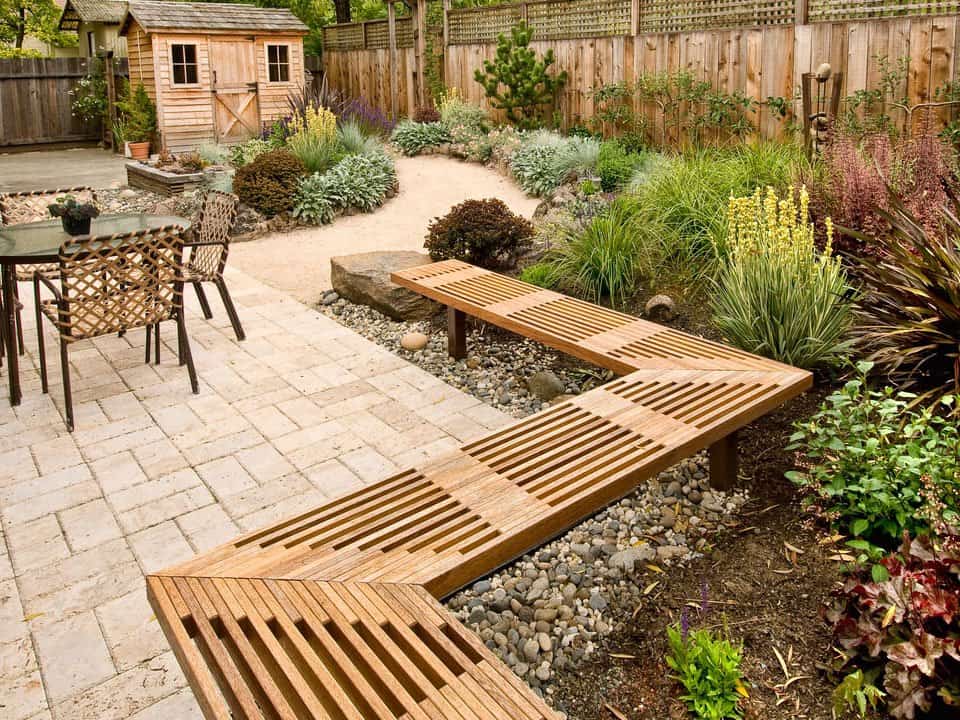
Herb Garden with Rocks
Herbs thrive when they have space to breathe. Sparse clusters of rocks help define that space, creating pockets where thyme, oregano, and rosemary can spread without being crowded. The stones also store warmth, extending growing seasons and deterring curious critters. It’s beauty with purpose.
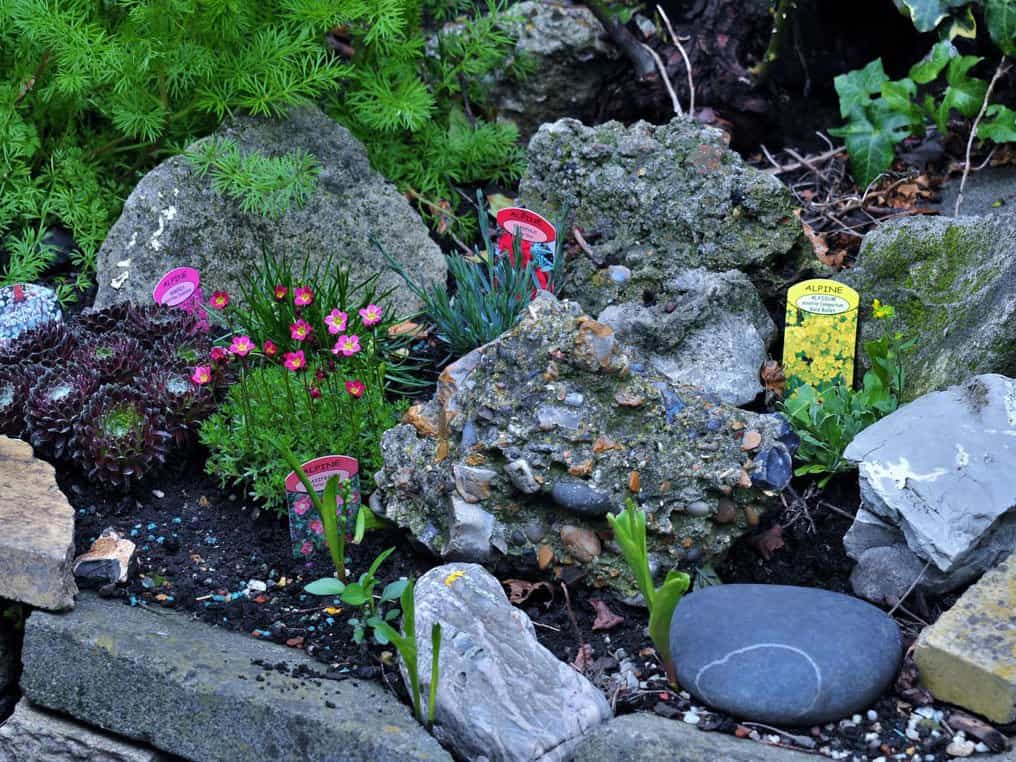
Bamboo Rock Fountain
Centuries-old Japanese rock basins form when water carves its way through stone. You might not have a hundred years, but you can replicate the effect. A bamboo spout feeding into a hand-carved basin creates the same tranquility — and doubles as a birdbath. It’s the sound of peace in motion.
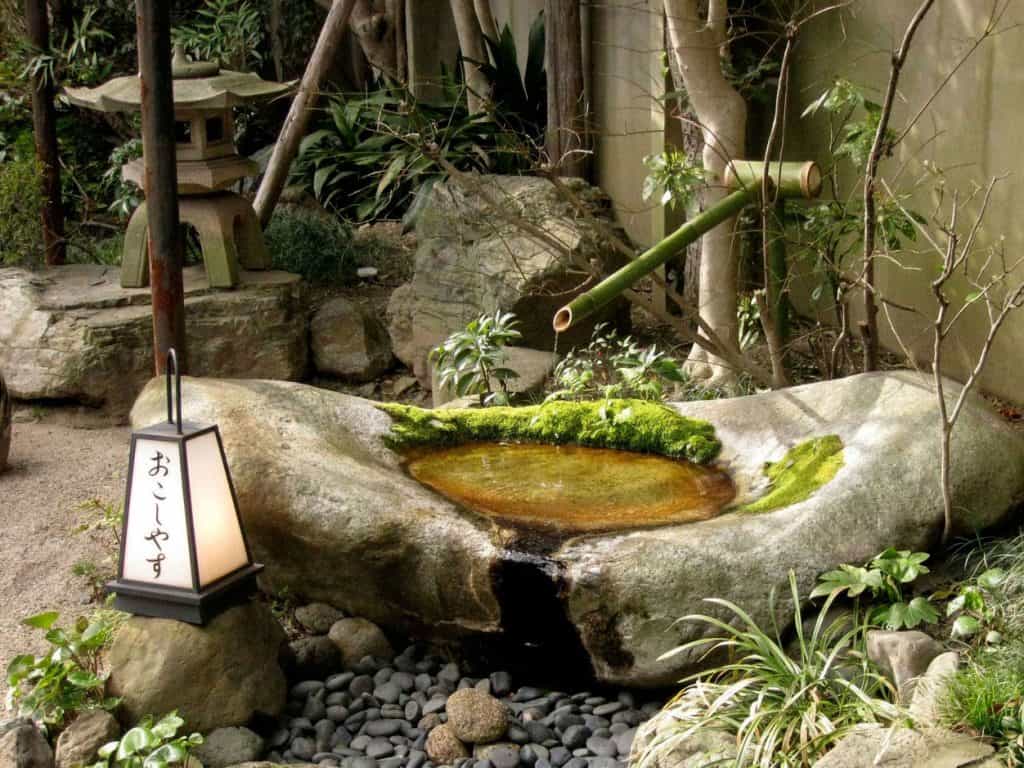
Small Rock Fountain
Similar to the bamboo design, this miniature fountain sits nestled among grasses and small plants. It feels ancient, almost discovered rather than built. The hidden pump recirculates water, keeping it alive without waste. Every trickle feels like a meditation.
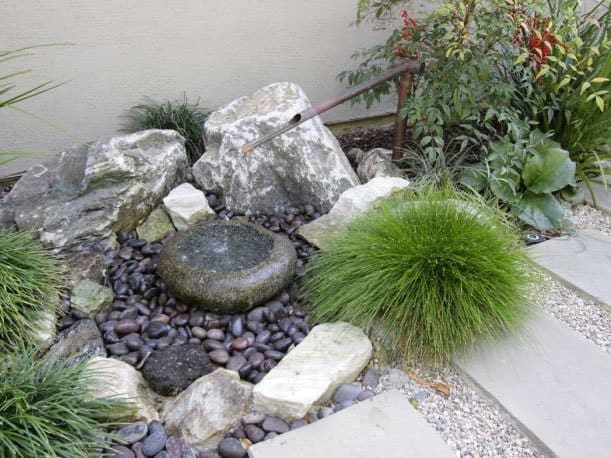
Rock Wall Garden
Not all ground is kind to gardeners. For those with slopes or poor soil, a rock wall garden can turn a problem into an advantage. Hardy plants like sedum, creeping phlox, and saxifrages thrive in crevices, turning walls into living tapestries over time. The secret is patience; the wall will fill itself if you let it.

Desert Rock Garden
For dry climates, rocks aren’t decor — they’re survival. A desert rock garden blends succulents and cacti into small stone beds that retain heat and drain water fast. It’s a rugged beauty, one that looks best under a punishing sun. Less grass, more resilience.
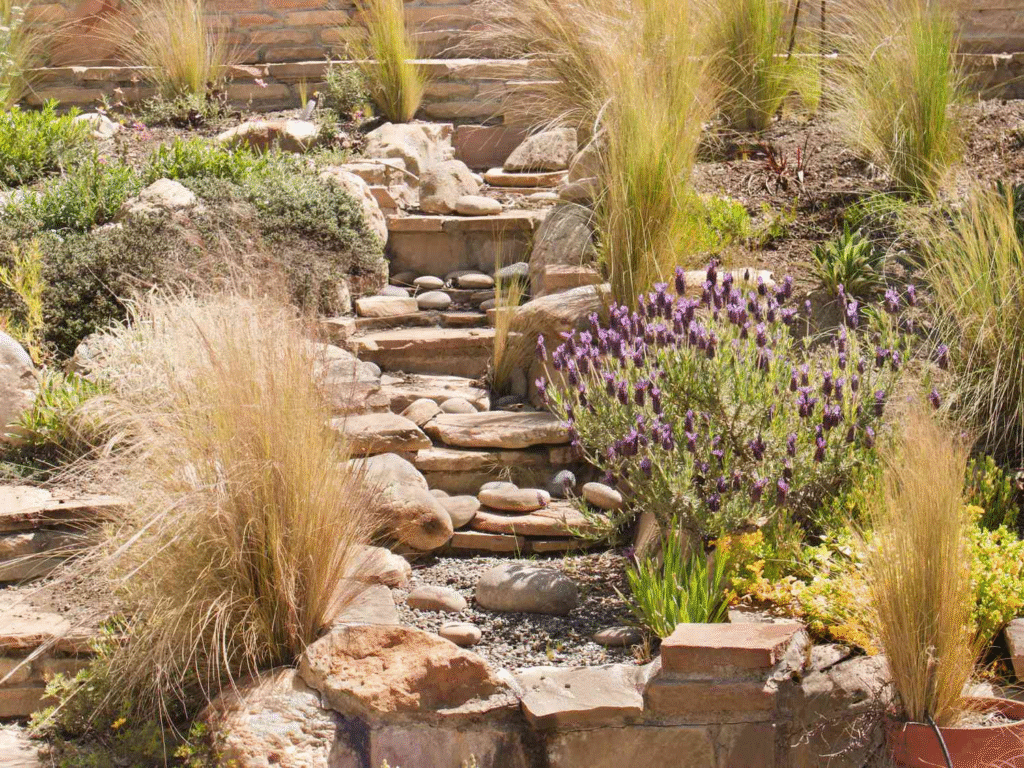
Japanese Garden Bed
Miniature landscapes, scaled down to perfection. This Japanese-inspired rock garden combines bamboo borders, river stones, and overgrown grasses to imitate the natural flow of a dried streambed. It feels both disciplined and wild — like nature curated by monks.
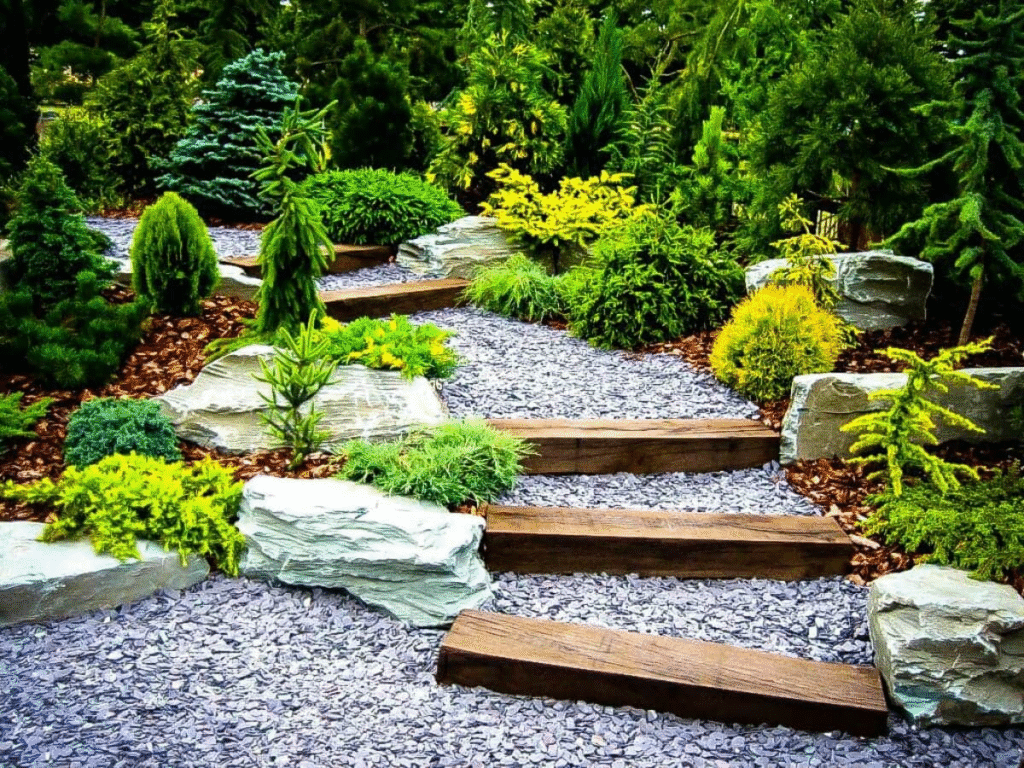
Checkerboard Rock Walkway
A pattern that plays with the eye. Alternating square slabs of stone and patches of grass create a checkerboard that feels alive. Over time, the grass softens the precision, blending design and decay. The result? A path that celebrates imperfection.

Common Questions
How Much Will It Cost?
The cost depends on how big you dream. Here’s a rough guide:
| Landscape Rock Type | Minimum Cost | Maximum Cost |
|---|---|---|
| Crushed Granite | $50/cubic yard | $70/cubic yard |
| Pea Gravel | $2/bag | $3/bag |
| River Rocks | $0.05/pound | $0.35/pound |
| Mexican Beach Pebbles | $20/bag | $30/bag |
Prices vary by region, but in the end, the most valuable part of your garden isn’t what you spend — it’s the patience you invest.
Where Should You Build It?
Choose a space that’s easy to visit and visible from where you rest. A rock garden is not decoration; it’s a living reminder of balance. You’ll want to check on it often, especially during weeding season or after rain.
What Plants Work Best?
For small rock gardens, ground covers like creeping thyme, sedum, or moss add softness. In desert designs, succulents and cacti dominate. If water features are part of your layout, ferns and creeping herbs bring texture and life to the damp edges.
A rock garden is not built overnight. It’s shaped over weekends and years — a collaboration between you and the elements. The stones will stay, the plants will grow, and if you’re lucky, someday it will look as though it’s been there forever.